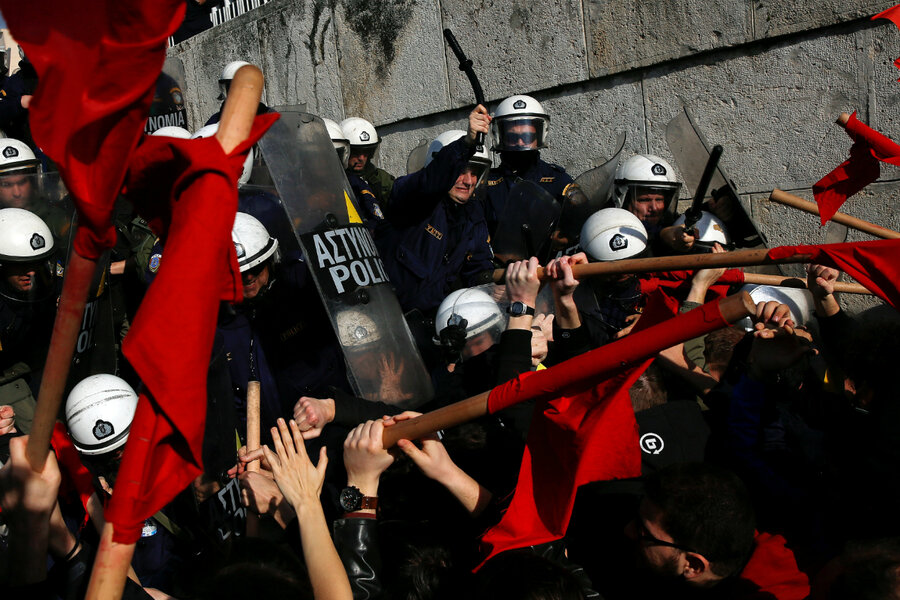Greece's new restrictions on the right to strike leads thousands to protest
| Athens
Thousands of Greek protesters marched in central Athens on Friday against new reforms, including restrictions on the right to strike, that Parliament is set to approve next week in return for bailout funds.
In the first major industrial upheaval of 2018, the shutdown of the Athens metro, used by some 938,000 commuters daily, caused traffic gridlock in the city of 3.8 million people.
Ships were unable to sail as workers went on strike and state-run hospitals had to rely on reserve staff as doctors walked off the job. More work stoppages were expected on Monday.
The bill pending Parliament approval on Monday would restructure family benefits, introduce a new process for foreclosures on overdue loans, and make it harder to call a strike.
"Hands off strikes!" protesters with Communist-affiliated group PAME chanted during a march of about 20,000 people, as lawmakers debated in Parliament. Others held banners reading "Uprising!" and "No to modern slavery!"
There were some clashes outside Parliament when some protesters attempted to approach the building. They were pushed back by police who sprayed teargas, but the altercation was brief.
The draft law has outraged many Greeks, who have seen living conditions and incomes plummet since the country first sought international aid to stave off bankruptcy in 2010, and required another two bailouts thereafter.
It is a bitter pill for ruling Syriza, the dominant party in the government elected in 2015, which has its roots in left-wing labor activism.
"This essentially abolishes the right to strike ... such things only happened during the junta," said retired ship officer George Papaspyropoulos, referring to the military dictatorship that ruled Greece from 1967 to 1974.
"This government is a leftist in name only, but in deeds its a junta."
At present, unions can call strikes with the support of one-third of their members. The new law would raise that to just over 50 percent, which creditors hope would limit the frequency of strikes and improve productivity that lags about 20 percent behind the European Union average.
The government says it needs the reforms to receive tranches of bailout aid. The latest bailout, worth up to 86 billion euros ($104 billion), expires in August. So far Greece has received 40.2 billion euros, and a new tranche is expected to be worth around 4.5 billion euros.
This story was reported by Reuters.





